Race for the Relocation of Two EU Agencies Has Begun
Adelina Marini, August 3, 2017
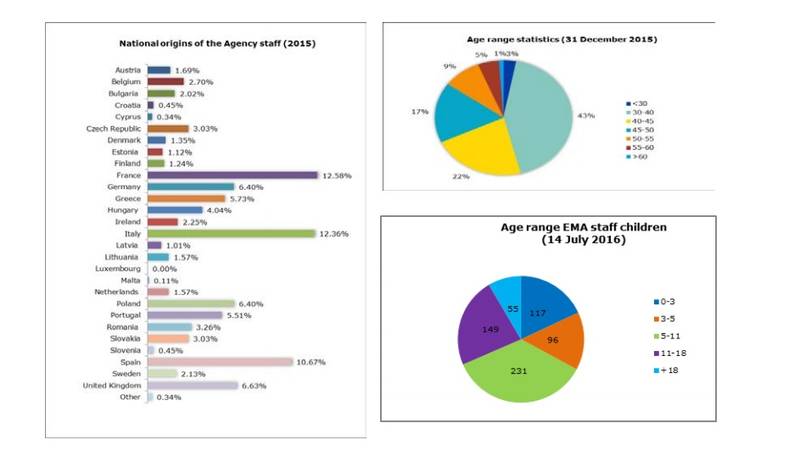 The main driving force of the British voters' decision for a Brexit was the threat of an invasion of European migrants, especially from the poorer parts of the European Union and consecutively less qualified. The topic dominated the debate for years before the crucial referendum of last year and rarely allowed for the thesis of the benefits of highly skilled workers be heard. Just one year later, on the continent, this thesis is already a dominating one, following the start of the major battle for the relocation of two of the EU agencies currently based in London - the European Medicines Agency (EMA) and the European Banking Authority (EBA).
The main driving force of the British voters' decision for a Brexit was the threat of an invasion of European migrants, especially from the poorer parts of the European Union and consecutively less qualified. The topic dominated the debate for years before the crucial referendum of last year and rarely allowed for the thesis of the benefits of highly skilled workers be heard. Just one year later, on the continent, this thesis is already a dominating one, following the start of the major battle for the relocation of two of the EU agencies currently based in London - the European Medicines Agency (EMA) and the European Banking Authority (EBA).
At first glance, the competition looks like another minor battle in the EU among member states, called a Eurovision contest by some, but from the bids submitted so far several conclusions can be made, the most important of which is that this competition is a very accurate measure of the level of integration. Another possible conclusion is that member states are competing to attract highly qualified staff and their families - a process that is contrary to the motivation behind the Brexit. The race also shows what the freedom of movement of people means and how important it is for an EU institution. Imagine what this freedom means for businesses - for every small, medium or large company.
What is the fight all about?
The European Medicines Agency has been in place since 1995 and is responsible for the evaluation and supervision of all human and veterinary medicinal products in terms of their safety, efficacy and quality. The agency has 890 employees, with about 55% of them having partners (marriage or registered partnership). The agency does not conduct research or tests, nor does it produce drugs. Its main task is to coordinate scientific expertise and resources of the member states in the field of medicines. In 2015, the agency held 564 meetings with about 36,000 visitors. 4273 teleconferences were held.
At present, the EMA building is located on an area of 27,000 sq. m. that includes a reception area, conference rooms, offices, and auditoriums. According to last year's data, 30,000 hotel stays were booked for the agency's work, with a daily capacity of 350 hotel rooms at peak times. A total of 648 children of agency staff aged 0-18 were enrolled in September 2016 at a school, kindergarten, nursery or university. There are 117 kindergartens, 96 preschools, 231 primary schools, 149 high schools and 55 universities involved.
The European Banking Authority was created as a response to the financial crisis of 2009 and started work on 1 January 2011. Its main function is to participate in the supervision of the European financial system and to help develop common banking rules. According to last year’s data, the agency has 189 employees. The EBA currently uses a total area of 4150 sq. m, which includes office space, conference rooms, warehouses. Last year, 340 events were organised, including meetings, workshops, seminars, hearings, and etc., in which 9215 participants took part. They generated an average of one night in a hotel, which means 9,000 nights.
Approximately 50% of the body's employees are in a marriage or partnership. A total of 130 children needed education. 39 of them went to kindergarten and 77 to primary or high school. Fourteen attended a university.
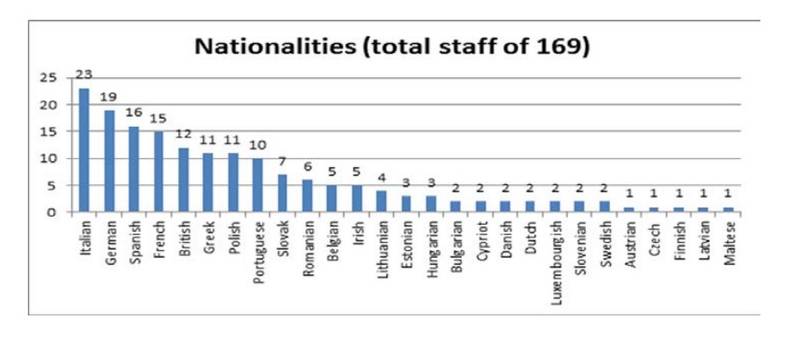 During the EU Summit in June this year, leaders of member states approved the criteria for choosing the most suitable place for the two agencies to move, as well as the procedure for conducting the competition. This was expected to be one of the most controversial items on the agenda, for many states objected to the Commission's initial proposal for the criteria. However, an agreement was reached quickly. By July 31, all interested parties had to submit their applications. The Commission will examine them and assess them on the basis of the agreed criteria. It will announce its decision on 30 September.
During the EU Summit in June this year, leaders of member states approved the criteria for choosing the most suitable place for the two agencies to move, as well as the procedure for conducting the competition. This was expected to be one of the most controversial items on the agenda, for many states objected to the Commission's initial proposal for the criteria. However, an agreement was reached quickly. By July 31, all interested parties had to submit their applications. The Commission will examine them and assess them on the basis of the agreed criteria. It will announce its decision on 30 September.
Then the process of voting in the Council of Ministers begins. The criteria are a total of five: guarantees that the agency can take up its functions on the day of UK withdrawal from the EU, which should be done on March 29, 2019 by treaty, unless there is an extension; accessibility of the location, which means proximity to airports, train stations, etc., availability and frequency of flights as well as flight duration, good transport system in the city itself; availability of adequate educational facilities for employees' children, which necessarily means availability of multilingual schools; an opportunity for employees' partners to find a job; business continuity, which means that agencies can hire the highly qualified staff they need.
The first vote in the Council will be on the EMA. Member states selected for EMA will not be eligible to compete for EBA. In the first round of voting, each member state is entitled to one vote consisting of 6 points distributed as follows: three points for the preferred bid, two for that bid which ranked second, and one for the third offer. The proposal, which scored 3 points from at least 14 member states will be considered selected. If no bid gets 14 or more votes, two of the bids with the most votes go to a second round where each member will have one vote = one point. Again, a minimum of 14 votes must be gathered, if not, it goes to a third round. In the third vote, the bid that receives the highest number of votes wins. In the event of a draw, the presidency will draw lots.
Who fights for what?
A total of 19 applications have been presented for the EMA by July 31: Amsterdam, Athens, Barcelona, Bonn, Bratislava, Brussels, Bucharest, Copenhagen, Dublin, Helsinki, Lille, Malta, Milan, Porto, Sofia, Stockholm, Vienna, Warsaw and Zagreb. Applications for EBA were filed from eight cities: Dublin, Frankfurt, Luxembourg, Paris, Prague, Vienna, Warsaw. A large number of EMA candidates have also offered videos presenting their main strengths. Some of them are trying to prove that the cities to which they refer meet all the criteria. These are the more unknown destinations of new Europe, such as Bucharest, but also Warsaw.
Others rely on being well-known business destinations like Amsterdam, Dublin, Bonn. Advertisements of Copenhagen and Dublin are highly politicised. Both include the prime ministers of the host states, the Copenhagen one being almost like a promotional video of Prime Minister Lars Løkke Rasmussen for an upcoming election. Another group is ads with more tourist focus, such as Zagreb and Milan, for example. Barcelona is applying with two video ads, one being through the eyes of two young children who portray Barcelona as the fairytale world in which they live. A very cute video. The other is professional, but there is a touch of tourism in it.
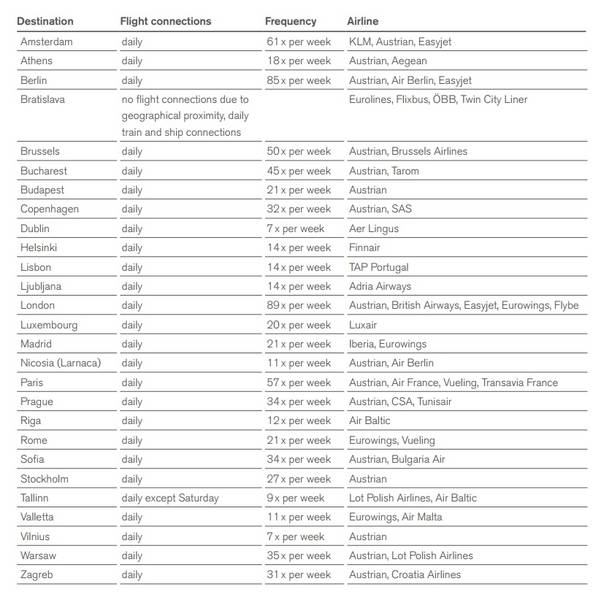
The Sofia and Brussels bids are the only ones without video ads. Until recently, Bratislava didn’t have one either, but while euinside was preparing this text, the Slovak video was uploaded. The focus in many videos is how foreigners manage to integrate and feel at home. Most bids are 80-100 pages long. The Bulgarian one is only four. Each city highlights its advantages, it presents the availability of ready-to-use buildings or future projects, infrastructure, educational capacity and, above all, connectivity with other countries. This is actually the most remarkable part of this contest. In some more detailed offers, applicants have submitted schedules of regular (weekly) direct flights from the city to different destinations in the EU, which show the actual connectivity/isolation of the candidates.
Schedules are remarkable in another aspect as well. In many of them, the largest number of flights per week is to ... London. Against the background of the Brexit, this is a pretty depressing finding that questions the extent to which these flights will decrease after the UK leaves and who will suffer the most from that. The champion in this sense is Dublin, where there are over 300 flights a week to London. Ireland claims Dublin is best suited to host one of the two agencies because of the language, the frequency of flights, the fact that the country hosts most major international companies, which provides employment opportunities for employees' families. However, in the Council, there is an agreement that new member states should be given priority in this case.
The final decision on the relocation of the two agencies should be made in November at the General Affairs Council. This will be more than a symbolic act as it will show what London loses and who wins on the continent. The most important thing in this exercise is that it shows exactly what the EU is and that it can also be a talent competition, not just a feud because of the influx of unwanted workforce. In this sense, the competition really has a lot in common with Eurovision - it is not that important where these agencies will be, but the show is nice, all are loaded with a positive emotional charge, patriotism is gently stroked, a large audience for advertisers (investors), there is positive talk about the freedom of movement of people and that they are welcome anywhere in the EU, and last but not least, we have taken another step towards getting to know each other (as cities and the type of institutions we have).
Translated by Stanimir Stoev
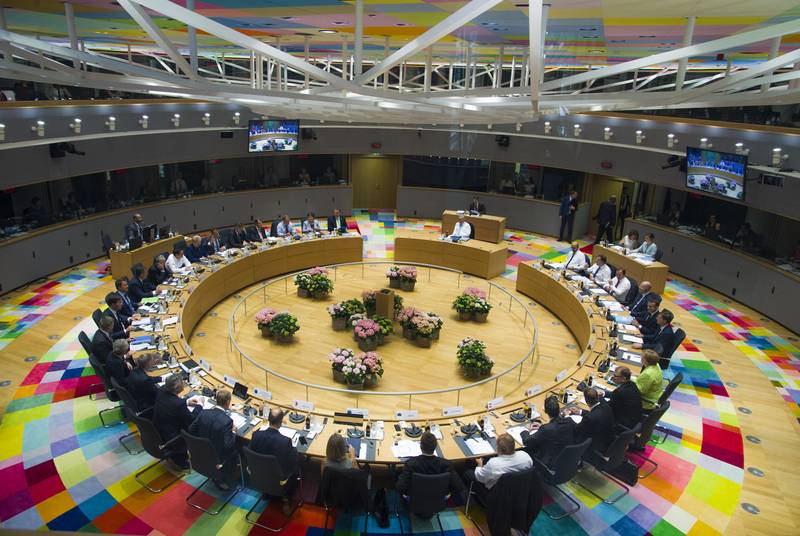 | © Council of the EU
| © Council of the EU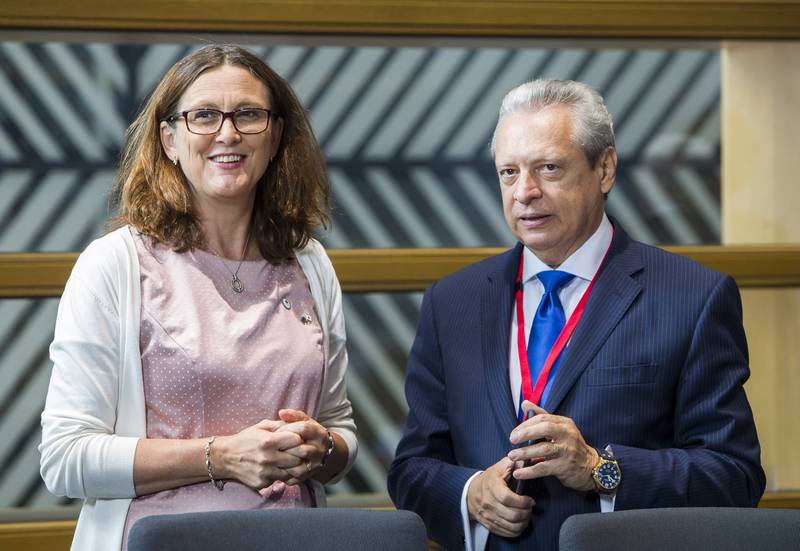 Cecilia Malmstrom | © Council of the EU
Cecilia Malmstrom | © Council of the EU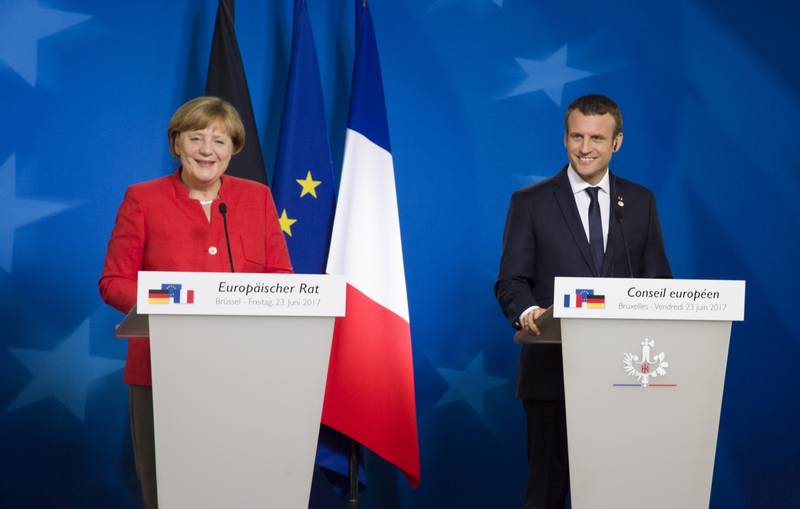 Angela Merkel, Emmanuel Macron | © Council of the EU
Angela Merkel, Emmanuel Macron | © Council of the EU Federica Mogherini | © Council of the EU
Federica Mogherini | © Council of the EU | © Council of the EU
| © Council of the EU Luis De Guindos | © Council of the EU
Luis De Guindos | © Council of the EU